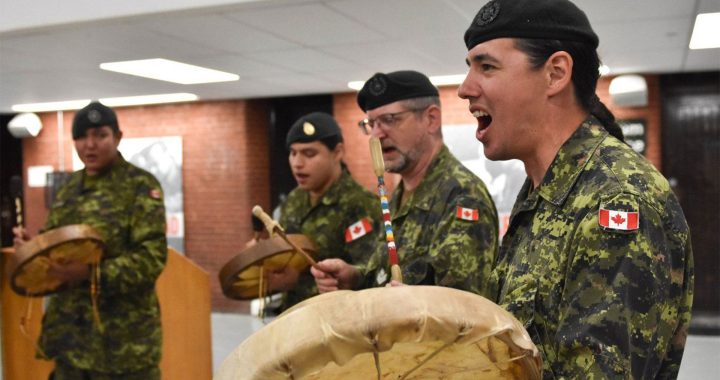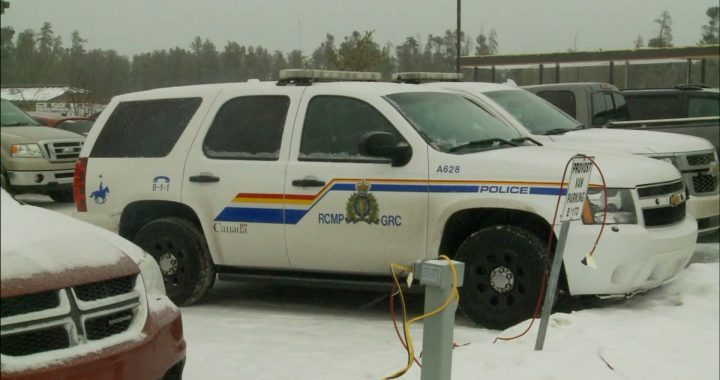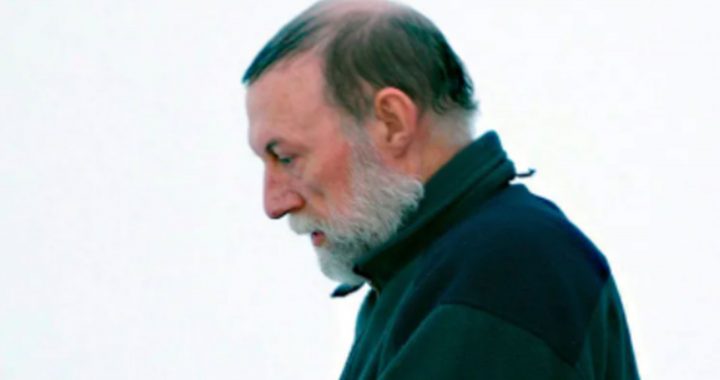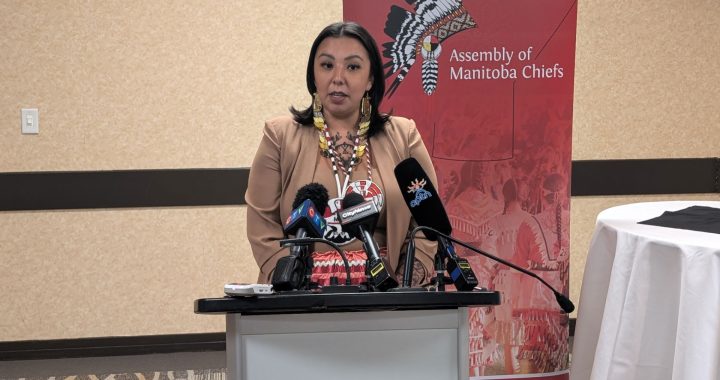The Assembly of Manitoba Chiefs and families of two First Nations women who are believed to be buried in a landfill outside Winnipeg say they want authorities to press on and start a search as soon as possible.
“If a search is not carried out it will demonstrate to all nations across Canada that this government condones the despairing act of disposing of First Nation women in landfills,” said AMC Grand Chief Cathy Merrick at a news conference in Winnipeg on Friday.
The feasibility study, which was shared with families ahead of time, looked at the various scenarios and challenges that come with searching a landfill and concluded a canvass of the Prairie Green Landfill, located to the west of Winnipeg, is feasible.
It warns there are risks due to exposure to toxic chemicals and asbestos. But it says forgoing a search could be more harmful for the families of Morgan Harris and Marcedes Myran.
“Not conducting the search could cause considerable distress to victim family members,” the report says.
“The impact of not conducting a search and humanitarian recovery for remains of Morgan and Marcedes, when it is possible that they are in the Prairie Green Landfill, could have long-lasting repercussions on the families, friends, loved ones and First Nations and Indigenous communities in Manitoba and across Canada.”
Cambria Harris, the daughter of Morgan Harris who is believed to be one of the women in the landfill, says money shouldn’t be an issue.
“This feasibility study is 55 pages long as it should be, but no amount of words on paper can give you enough reasons as to why you should search for our woman, because it should have been done on the first page,” she said at the news conference.
“We will no longer be told what is and what isn’t feasible cuz you cannot put a price on human life.”
The AMC didn’t provide the full report – only a three-page executive summary.
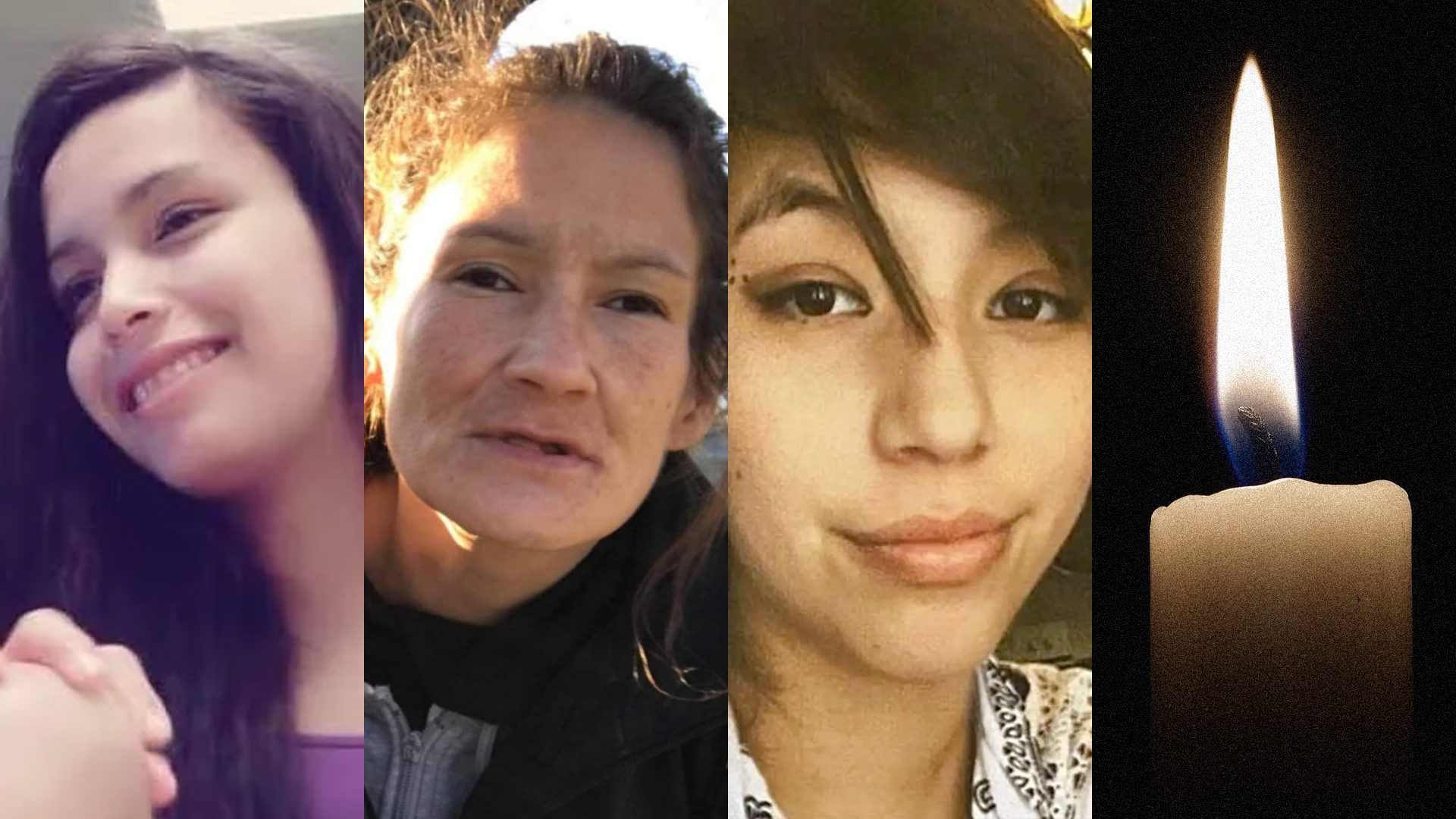
The study was paid for by the federal government after the Winnipeg police refused to conduct a search.
Kyra Wilson, chief of Long Plain First Nation where Harris was from, pledged that the search will take place.
“We are going to do that work with or without you,” she said. “If you’re going to support us, we appreciate that, we’re grateful for that, and if you’re not, get out of the way.”
According to the Harris family, Crown-Indigenous Relations Minister Marc Miller reached out to them and asked what the family’s stance was after reading the report – which also details the hazards of conducting the search.
“Actually, I was kind of appalled he would even ask such a question,” said Melissa Normand, cousin of Morgan Harris. “Where was our family’s stance? Where did we stand after receiving this report and reading it, and digesting it and picking it apart?
To really ask us if we still wanted to go forward. I just can’t even imagine to think that we were going say ‘oh no, it’s ok, we’re going to leave Morgan there.’ Absolutely not, it’s disgusting.”
Asked about the study while meeting with Inuit leaders in Nain, Labrador, Prime Minister Justin Trudeau said that the government will do whatever it can to help.
“As we’ve said from the very beginning, the federal government will be there to support in this grieving and healing process,” Trudeau said. “We know how atrocious and how difficult this is for the families and we will do whatever we can to help.”
Some of the biggest concerns outlined in the report were around health and safety. Hazardous materials teams are recommended to be on-site at all times to monitor air quality, act as safety officers and perform decontamination of personnel who are in an excavation pit or working closely with excavated materials.
Another concern is that excavating along a slope of debris could result in a landslide.
The committee says using a conveyor belt to search through debris would be the best option.
In order to proceed with a search, Prairie Green would need to submit a proposal to a regulatory body to approve the excavation and transportation of materials.
The study also calls for increased funding for social support and homeless shelters. It recommends mandatory GPS tracking systems and rear-facing cameras in garbage trucks in Canada, as well as surveillance video installed at entrances and exits at landfills.
The report doesn’t say who should pay for the search. Ottawa provided $500,000 to the Assembly of Manitoba Chiefs for the study.
Police believe the women’s remains were left in a garbage bin three days apart in early May 2022, says the report. The contents of the dumpster were sent to the Prairie Green Landfill on May 16.
Jeremy Skibicki has been charged with first-degree murder in the deaths of the two women, as well as two others: Rebecca Contois, whose remains were found at the Brady Landfill, and an unidentified woman Indigenous leaders have named Mashkode Bizhiki’ikwe, or Buffalo Woman.
Police have also not found her remains.
With files from the Canadian Press





